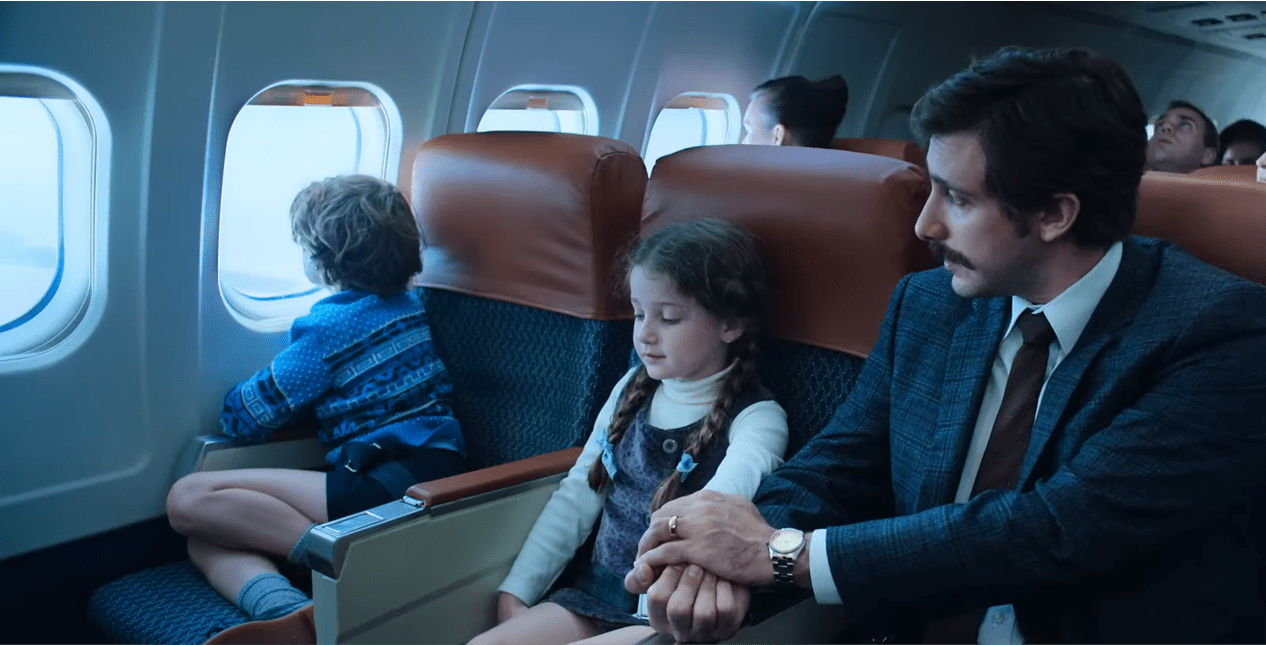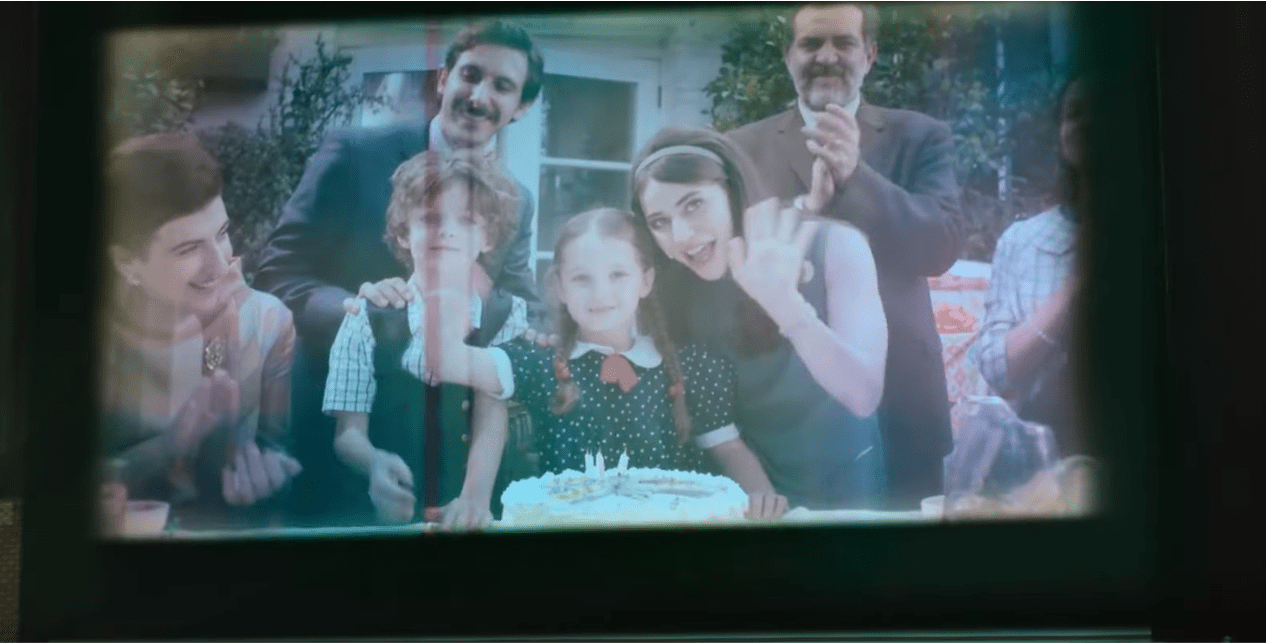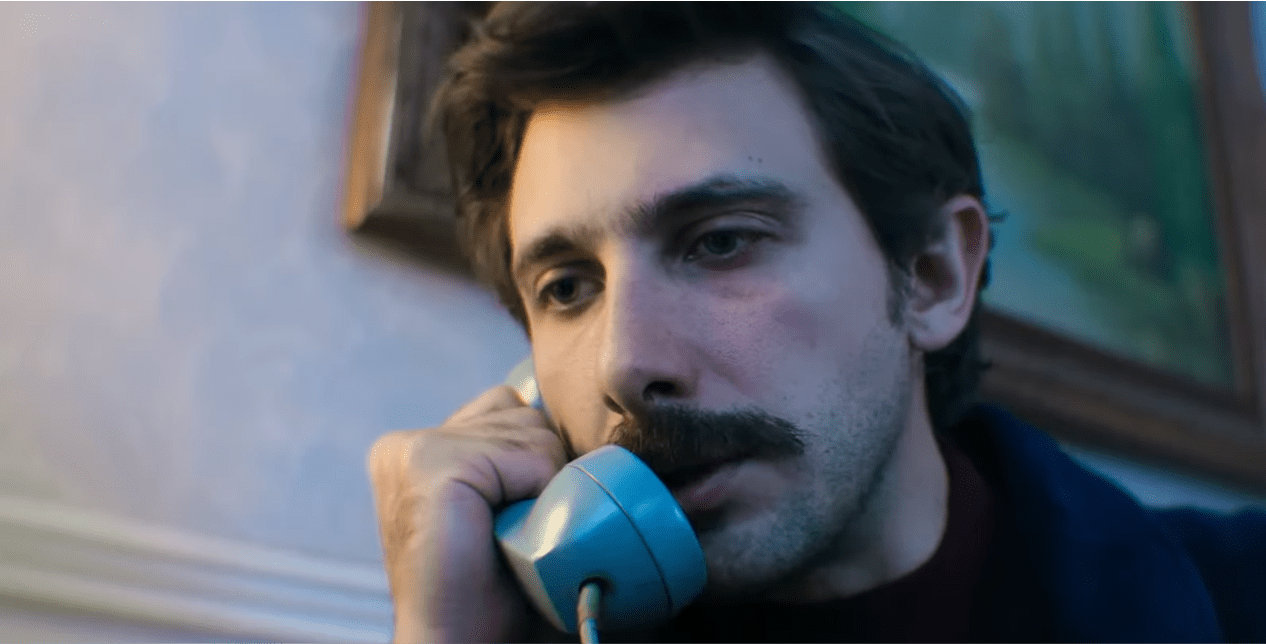Helmed by Samuel Kishi, Lucía Puenzo, and Nicolás Puenzo, Netflix’s ‘No One Saw Us Leave,’ originally titled ‘Nadie Nos Vio Partir,’ is a Mexican Drama series that brings the rifts and complexities of a family out into the forefront. When Valeria comes back home one day to see her children missing, panic and frustration take over. However, things go up several notches when she realizes that they have been kidnapped by none other than their father. What follows is a chase that takes the characters across several countries, with each step in this unpredictable journey chipping away at their collective consciousness. Desperate for the safety of her children, Valeria joins hands with an ex-Mossad agent, and while the search goes on, the psychological effects involved take on a life of their own, most directly affecting the two children. The narrative, adapted from an eponymous memoir by Tamara Trottner, shines light on the dark corners that humanity is capable of reaching into. SPOILERS AHEAD.
Leo Ran Away With the Kids to Psychologically Torment Valeria
Given that the show’s opening moments follow Leo taking off with his children, Isaac and Tamara, the exact reason for his actions remains wrapped in a layer of ambiguity for quite some time. However, little details, such as Leo pinning the blame on his wife, Valeria, suggest that this move is punitive on some level. Eventually, we learn that Leo’s decision to alienate the children from their mother is driven by the revelation of Valeria having an affair with Carlos. Following this discovery, he is influenced by his overbearing father, Samuel Saltzman, to punish Valeria and keep the family away from her. This advice echoes Leo’s own aggressive feelings about the situation, prompting him to lie to his wife about a short trip to Valle Del Bravo with just him and his children. While she initially agrees to the idea, it is only later that Valeria learns that the trip was a cover for Leo’s real, more nefarious plan to kidnap the children and run away.

While Leo’s plan is driven by rage and hatred, he never accepts that fact and instead redirects the onus onto Valeria. During a furious back-and-forth on the call, he tells her that the decision is to keep the children safe from the house’s toxic environment. However, this notion is quickly debunked as the scenes progress, and we learn that life with Leo isn’t much better. Isaac and Tamara’s traumatic experiences push them deeper into a life driven by fear and paranoia, which in turn has a compounding effect on Leo’s psyche as well. Notably, when he first learns of Valeria’s affair, he suggests keeping it under wraps till the children were grown up, precisely to avoid uncomfortable and potentially traumatic conversations. The stark contrast between his earlier stance and the cruelty he later displays points to a significant turn in thought, with his parents’ involvement likely serving as the catalyst.
Though Leo’s journey with Isaac and Tamara is largely defined by his action and inaction, it is his father, Samuel, who paves the way and plans every step of the process, be it their stops, stays, or escapes. To that end, the question of blame hinges on both of their shoulders, with their shared, toxic idea of family values and masculinity serving as a guiding factor. In his exchange with Valeria, Leo asserts that while it is his father who advised him on this course of action, the decision is ultimately his. This idea is sustained across the season, as Leo’s desperate attempts to rein in his children only further the emotional gaps in the dynamic, ultimately resulting in a family relationship that bears little to no resemblance to how things started. As such, while Leo’s plan initially comes as a response to his wife’s affair, more layers are unraveled as time passes.
Leo’s Actions Reflect a Desire For Control
In one notable scene from episode 2, Leo and Valeria reach a potential compromise, where he agrees to return home with the children on the condition that she break things off with Carlos. In such a scenario, not only the family’s image, but also its original dynamics, are both replaced, and Leo’s rejection of that offer speaks to the deeper factors that drive his kidnapping. More light is shed on his reasoning in the form of his discussions about himself, particularly his existential desires. Having been born into wealth, Leo constantly struggles with finding his own ambitions and carving his own path, and that leads to bigger issues in his psyche down the line. In particular, he frequently expresses a desire to cut off his ties to the family and single-mindedly pursue his bigger desires, with one of them being life in a Kibbutz in Israel. Things come full circle when he kidnaps the children, as the final stage of their journey brings them to Israel, where they end up settling in a Kibbutz community.

In light of his hidden desires for both freedom and community, Leo’s decision to run away can be interpreted as a means of self-expression. However, things get more complicated when Isaac and Tamara are included in the equation. As their father, Leo is constantly reminded of his responsibility, as both a figure of affection and discipline in their life. To that end, his decision to run away comes with a series of grim consequences, and he resorts to burying instead of addressing them. This is exhibited in his trying to warp the escape journeys into adventurous ones, hoping to appeal to his children’s curiosity. However, by the end of the show, he comes to see the truth in his monstrous hunger for control over his life, which directly ends up hampering his children’s lives. This further introduces an element of cyclicality to the narrative, with Leo merely echoing the impositions of his father. As such, his ultimate decision regarding his children gains layers of additional meaning.


